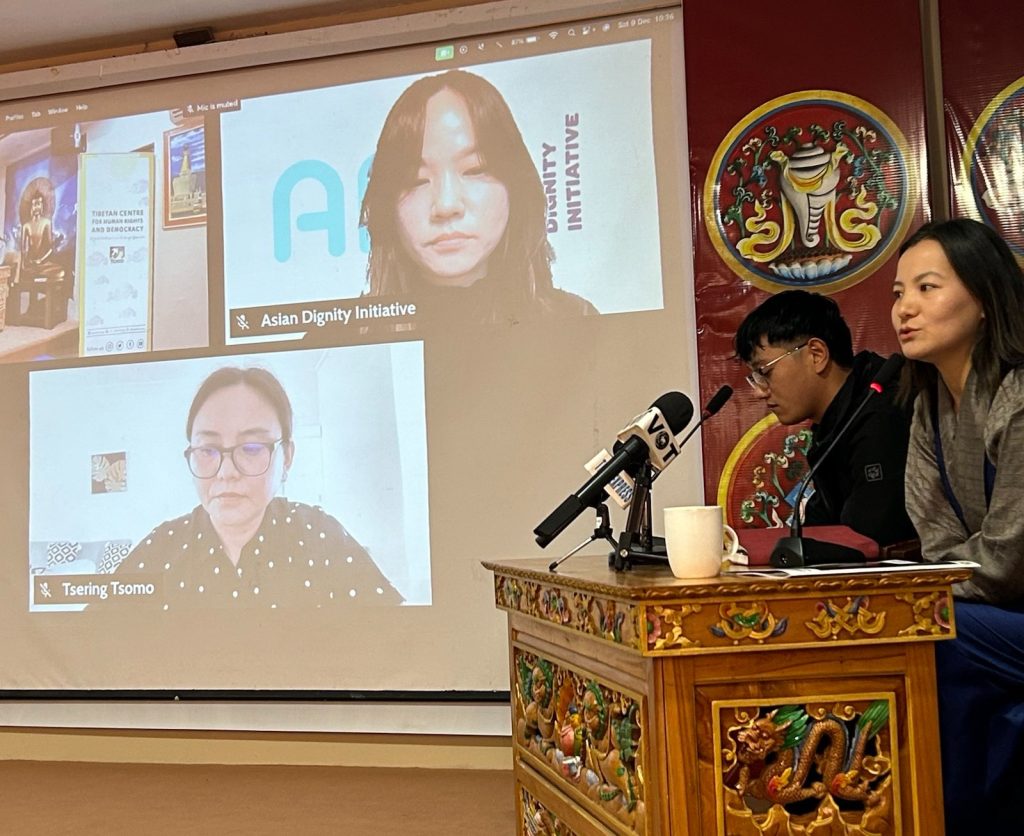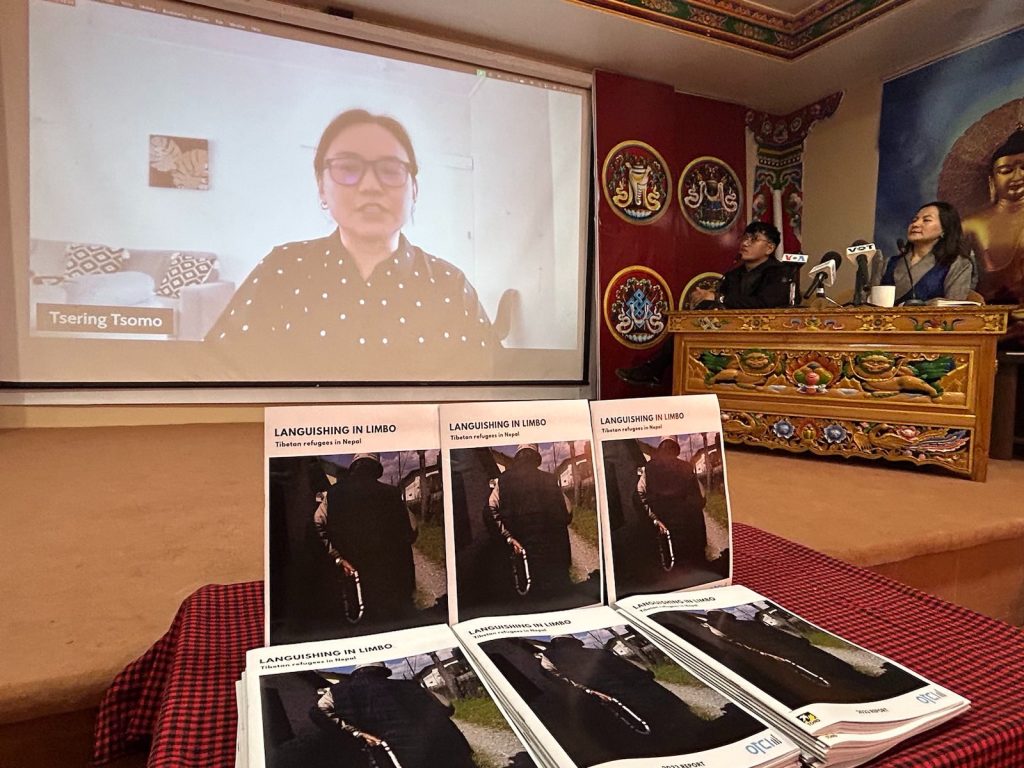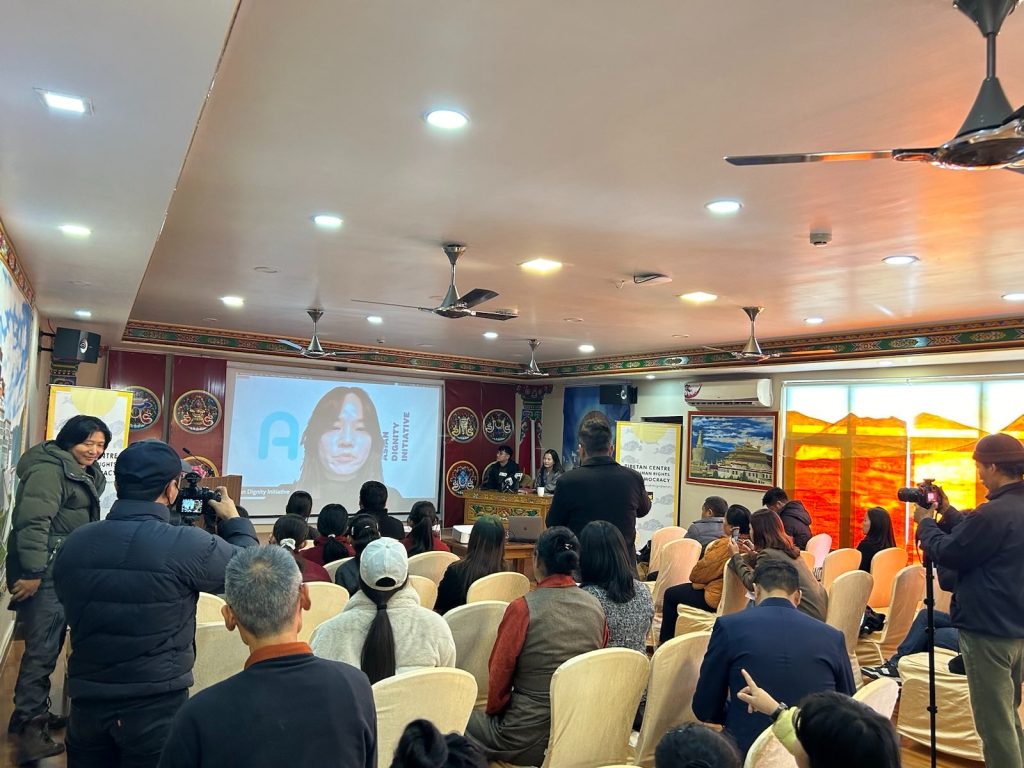New Report on Tibetan Refugees in Nepal Reveals Alarming Expansion of Chinese Influence

In recent years, the growing Chinese influence in Nepal has been so extensive and thorough that many Tibetan refugees living in the Himalayan state have begun calling it “Second Tibet”, alluding to the fact that the level of restrictions they experience is second only to Tibet, which is known as one of the least-free places in the world, revealed a report released today by the Tibetan Centre for Human Rights and Democracy (TCHRD) in conjunction with the Seoul-based Asian Dignity Initiative (ADI).
The report titled ‘Languishing in Limbo: Tibetan Refugees in Nepal’ confirms previous findings that Nepal, once known for providing a safe haven for Tibetan refugees fleeing Chinese government repression, has become a highly unsafe and insecure place for Tibetan refugees to exercise basic human rights including freedom of religion, culture and expression.

However, the situation has changed drastically over the years with devastating consequences on Tibetan refugees. The significant geopolitical shifts that favoured Chinese interests, from the 2015 border blockade with India to Nepal’s alignment with China through participation in the Belt and Road Initiative in 2017, further constrained the rights of the longstanding Tibetan refugee community in Nepal.
The economic and developmental benefits Nepal was promised through a raft of bilateral agreements with China came with the mandatory condition to adhere to the ‘One China’ policy, the strict application of which has resulted in shrinking civil and political space for Tibetan refugees. Nepal now uses the “One China” policy as a standard official justification for restricting human rights of Tibetan refugees, who are even denied cultural celebrations such as the Tibetan New Year or the Tibetan spiritual leader Dalai Lama’s birthday.
Tibetan refugees interviewed for this report shared how they are living a precarious existence, lacking many basic human rights. Many remain undocumented, which exposes them to further human rights violations. Even those who do hold refugee identification cards enjoy only limited freedoms, as the document does not go beyond simply recognising their existence. Attempts made by foreign governments to facilitate third country resettlement were thwarted by Chinese pressure on Nepal, resulting in Nepal’s refusal to issue exit permits to Tibetan refugees. “They won’t let us live or leave. What sort of arrangement is that? This is among the worst situations for a person to live in!” a Tibetan NGO worker in Kathmandu is quoted as saying in the report.
“We urge the Nepali authorities to protect the human rights of Tibetan refugees living within its border and grant them refugee identification cards with substantial rights and freedoms to live with dignity and freedom. Although Nepal is not a signatory to the Refugee Conventions, it is party to seven of the nine international human rights conventions. As per the 1990 Nepal Treaty Act, international human rights law has the same validity as the domestic law,” said Kinam Kim, executive director of ADI.
“In keeping with its international treaty obligations and for the sake of its national sovereignty, we urge Nepal to review and repeal all policies and agreements that violate the human rights of Tibetan refugees. We are particularly concerned about the increased Chinese-led surveillance and espionage activities targeting Tibetan refugees in Nepal,” said Ms Tenzin Dawa, executive director of TCHRD.

Download the full report here


